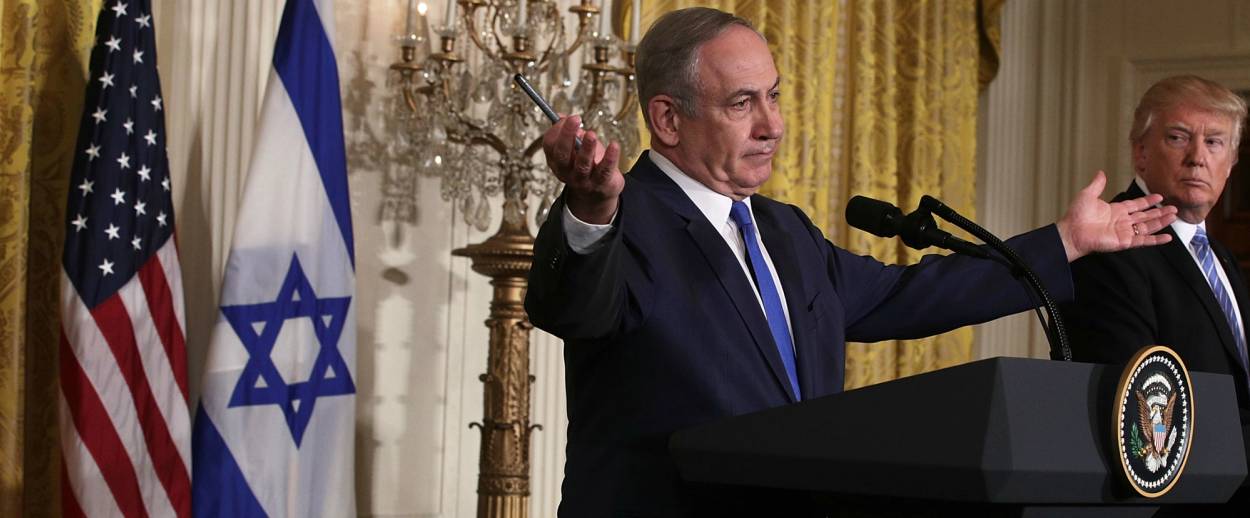What’s Mine Is Mine
Bibi and the case of ‘misplaced’ American Jewish fear




According to Benjamin Netanyahu, the fears expressed by American Jews in the wake of the Trump Administration’s overt decision to “universalize” the Holocaust are “misplaced.”
Let me get this straight.
After decades of arguing that it was unfair of American Jews to lob criticisms at Israel from inside the moral and political bubble of another country, the leader of the Jewish State now decides…what? That turn-about is fair play? That it’s OK to pooh-pooh the tremors felt by a minority community whose representatives now regularly find their profile pictures Photoshopped onto gas chambers, whose 3- and 4-year-olds have had to be rushed out of 48 (and counting) JCC kindergartens in the wake of bomb threats, who are now in the crosshairs of a record number of anti-Semitic hate groups?
The experience and implications of the Holocaust—the most stark and terrifying expression of where modern eliminationist anti-Semitism can lead—belong to the Jewish people, all of them, wherever they live. It is a burden carried by these people—all of us, wherever we live. That we, as individuals and communities, see different meanings in and take different lessons from tragedy is one of the maddening and exhilarating truths of the Jewish people. But it is our sacred burden to share it with each other. The Holocaust is not, and cannot be turned into, the political property of the state of Israel. We as a people, wherever we live, are all affected by it.
In a better world, there would be more trust between us. American Jews would believe you when you described the threats and challenges that you face in your neighborhood, and you would trust us to understand those in ours. But until that channel of good faith is reestablished, perhaps we should make a deal, Mr. Prime Minister: I won’t tell you what to be afraid of in your country, and you don’t tell me what I should fear in mine.
Alana Newhouse is the editor-in-chief of Tablet Magazine.